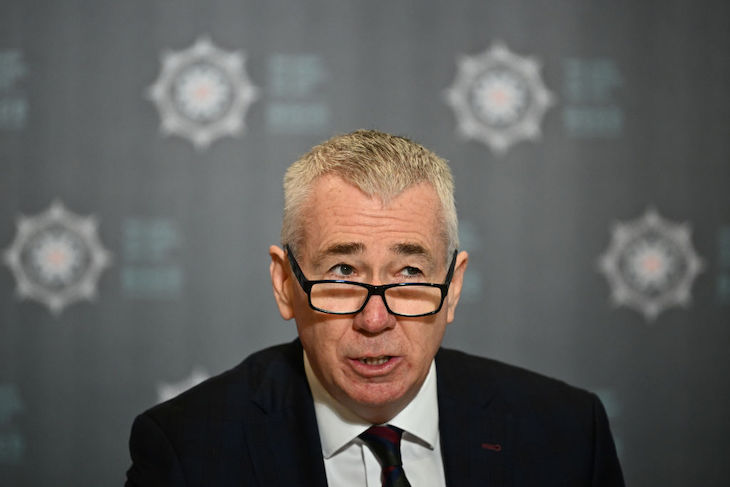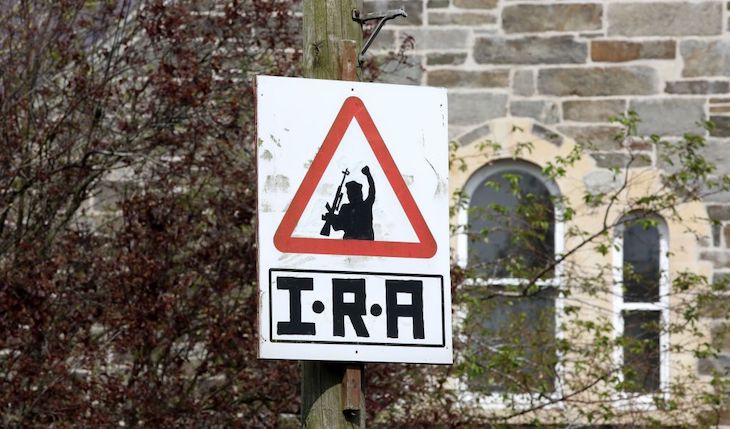‘Stakeknife’, a double agent who was an informant for the British Army while working within the innermost counsels of the Provisional IRA, probably cost more lives than he saved. That is the damning verdict of Operation Kenova, which has spent seven years – and £40 million – probing whether Stakeknife was effectively permitted to kill while the security forces watched on.
Stakeknife’s identity has never been officially confirmed but it is accepted he was a Belfast man called Freddie Scappaticci, who died last year. Interned in 1971 along with figures like Gerry Adams and Alex Maskey, he was a member of the Provisional Irish Republican Army (PIRA) by 1974 and came to head the terrorist organisation’s Internal Security Unit (ISU). Known as ‘the Nutting Squad’, this unit investigated leaks and pursued informants, often with fatal results. It was an extraordinary coup of the security forces, then, that Stakeknife was recruited first by the Royal Ulster Constabulary’s Special Branch and then by the Force Research Unit, a specialised division of the British Army’s Intelligence Corps.
The question underlying Operation Kenova is this: how much latitude was Stakeknife given in order to preserve his anonymity? What did the security forces permit him to do, or fail to stop him doing? When his cover was blown in 2003, rumours suggested he could have been responsible for as many as 40 murders. But he had also provided information which had undermined and thwarted many terrorist plots.
Northern Ireland Chief Constable Jon Boutcher’s report argues that the lives saved by Stakeknife’s activities have been overestimated, and probably lie between high single and low double figures. Higher figures rely on ‘unreliable and speculative’ assessments. By contrast, Stakeknife was linked to at least 14 murders and 15 abductions. The report also confirms that murders which could and should have been prevented by the security forces were allowed to happen.

It is hard to imagine the anguish of families of the deceased, knowing that their loved ones were, effectively, allowed to die by the state. Boutcher noted that the ‘morality and legality of agents doing any harm – with the knowledge of the state – is something that we would never, ever allow today’. Equally, no-one disputes that Stakeknife’s activities weakened the PIRA and were a hugely valuable source of information for the security forces. Balancing apparently irreconcilable factors is at the heart of Operation Kenova.
The report makes ten recommendations. They mainly concern the creation of ‘an independent framework and apparatus for investigating Northern Ireland legacy cases’. But Boutcher also argues that the UK government should apologise to the families of those whose lives could have been saved, and that the ‘republican leadership’ should say sorry for ‘PIRA’s abduction, torture and murder of those it accused or suspected of being agents’.
Given that David Cameron apologised in 2010 for the killing of 14 civilians on Bloody Sunday, following the 12-year investigation by Lord Saville of Newdigate, it would be fitting if an apology could be given, freely and sincerely, to those who suffered because of Stakeknife’s activities.
It would be astonishing if the leadership of the Republican movement was willing to match that contrition. It is not yet two years since Michelle O’Neill, now first minister of Northern Ireland, said there had been ‘no alternative’ to the IRA’s armed campaign during the Troubles. In response to the Kenova report, she would only apologise ‘for every single loss of life, and that is without exception’, refusing to apologise specifically for the activities of the PIRA.
More than 25 years after the Belfast/Good Friday Agreement, it is easy to forget just how dark and brutal a time the Troubles were. The security forces undoubtedly went beyond the bounds of legality on a number of occasions and people who should today be alive are dead. The government would be right to acknowledge and apologise for that. But legacy issues cannot be laid to rest by one side only. So long as the terrorist activities of the Provisional IRA are excused, contextualised and in some cases still celebrated, Northern Ireland will struggle to move on completely. Let us see how the Republican leadership reacts to Operation Kenova.







Comments